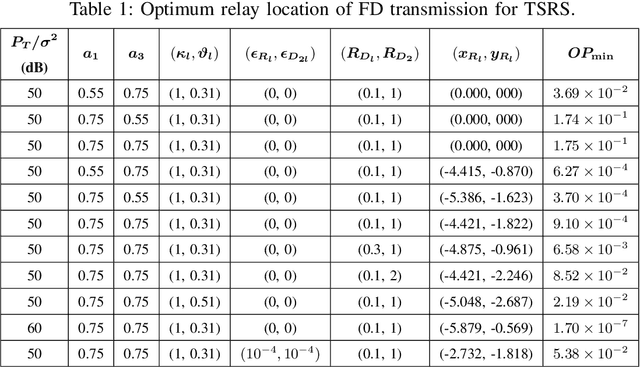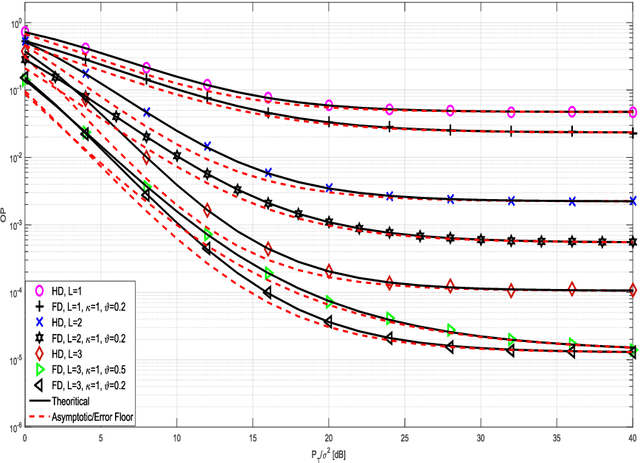Efendi Fidan
Relay Selection with Imperfect SIC for FD/HD NOMA Cooperative Networks over Nakagami-$m$ Fades
Mar 23, 2021



Abstract:In this work, a non-orthogonal multiple access (NOMA) based transmission between two sources and two end-users is examined over independent non-identically distributed (i.n.i.d.) slow Nakagami-$m$ fading channels, where a single relay using decode-and-forward (DF) protocol is selected out of a set of full-duplex/half-duplex (FD/HD) multiple relays in accordance with the quality of service criterion. Two relay selection (RS) strategies, selecting a relay to maximize data rate of user 1 at selected relay and selecting a relay out of a set of relays providing service quality for user 1 to maximize data rate of user 2, are analyzed. Additionally, not only perfect successive interference cancellation (pSIC) but also imperfect SIC (ipSIC) is considered. The exact and asymptotic outage probability (OP) expressions are derived and validated via Monte Carlo simulation technique. Unlike existing works, our expressions are unique and valid for all cases such as FD and HD together with pSIC and ipSIC, i.e. expressions are not given separately but in a single compact form. Effect of each component such as pSIC, ipSIC, and self-interference (SI) for FD transmission on error floor of OP is demonstrated. Moreover, the optimum relay location is illustrated for a plenty of scenarios consisting of combination of different power allocations, data rates, pSIC/ipSIC, and total transmitted powers.
 Add to Chrome
Add to Chrome Add to Firefox
Add to Firefox Add to Edge
Add to Edge